A brief written about the subject Ecology.
Aloof Birds “Last century, the cliff-dwelling bird of prey almost became extinct in Britain. Now it has reinvented itself as a city creature. What is behind this spectacular recovery?” [Guardian] The falcon is no longer seen as a pest, or at least, not in the city. This can be seen as an example of a changing of perspectives toward natural things. Could this be achieved for other beings? Normally the line goes that humanity is battling to contain and control nature, but somehow something about the Peregrine Falcons of cities subverts that. Would you say they are or are not meant to be there? Falcons in London, is that natural? My neighbour recently tore up their front and rear gardens, paving over the front for their car and replacing the back lawn with fake grass. What makes us do that? Is a real lawn seen as a pestilence? Have we become so disgusted by other living things we can’t bear to live with a garden of real grass or have we become so detached from nature that we can't bear to live with a garden we can't control? What can change these perspectives, prevent them, turn them back? Has blissful ignorance, caused by the urbanisation, concreting, metropolising of all aspects of human society, led us to the alienation of all things natural, living, growing. Can there be a notion of coexistence with nature when we humans carry responsibility caused by our constant over-intervening? Is there a way we can make space in our human society for things non-human?

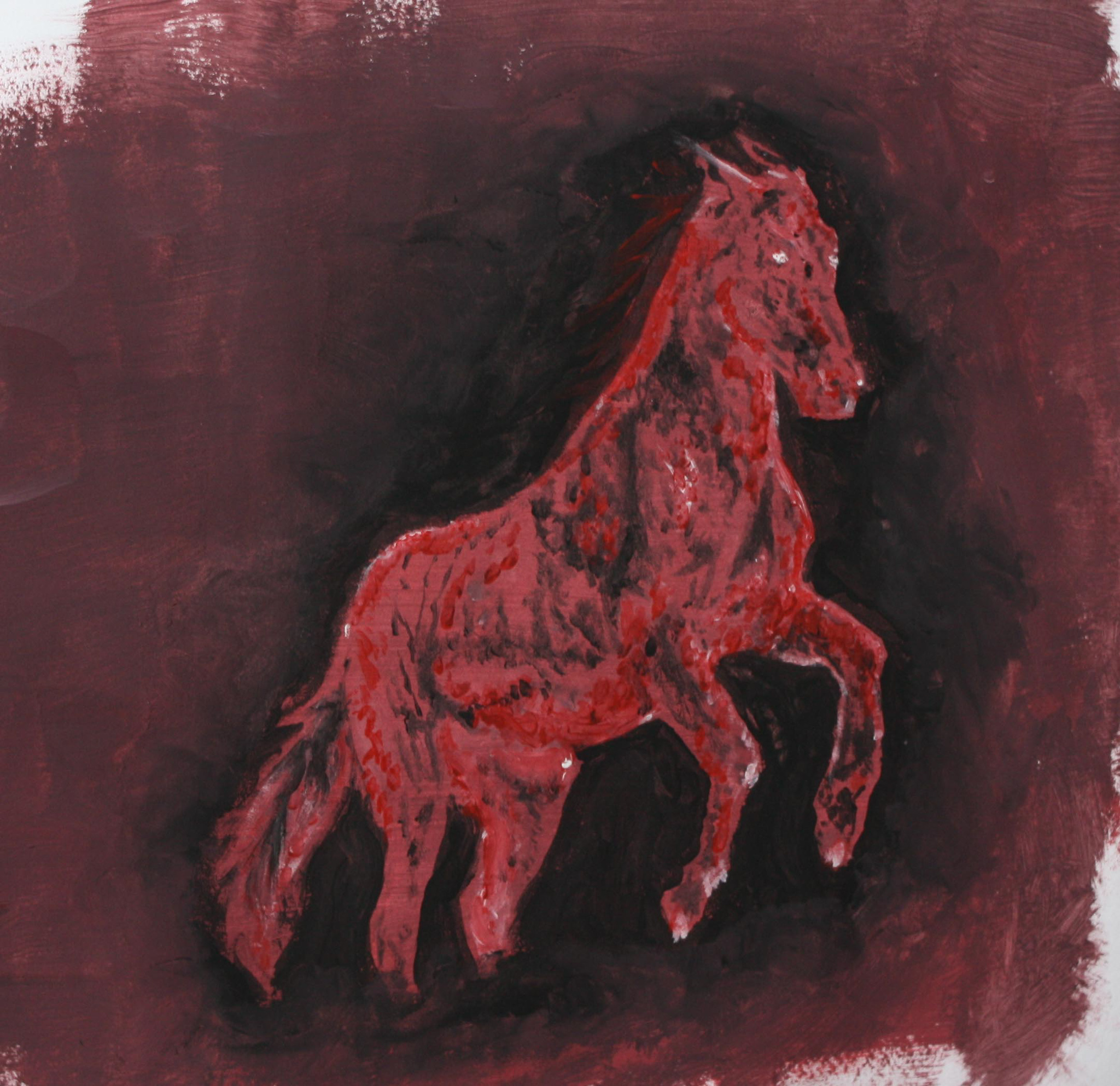
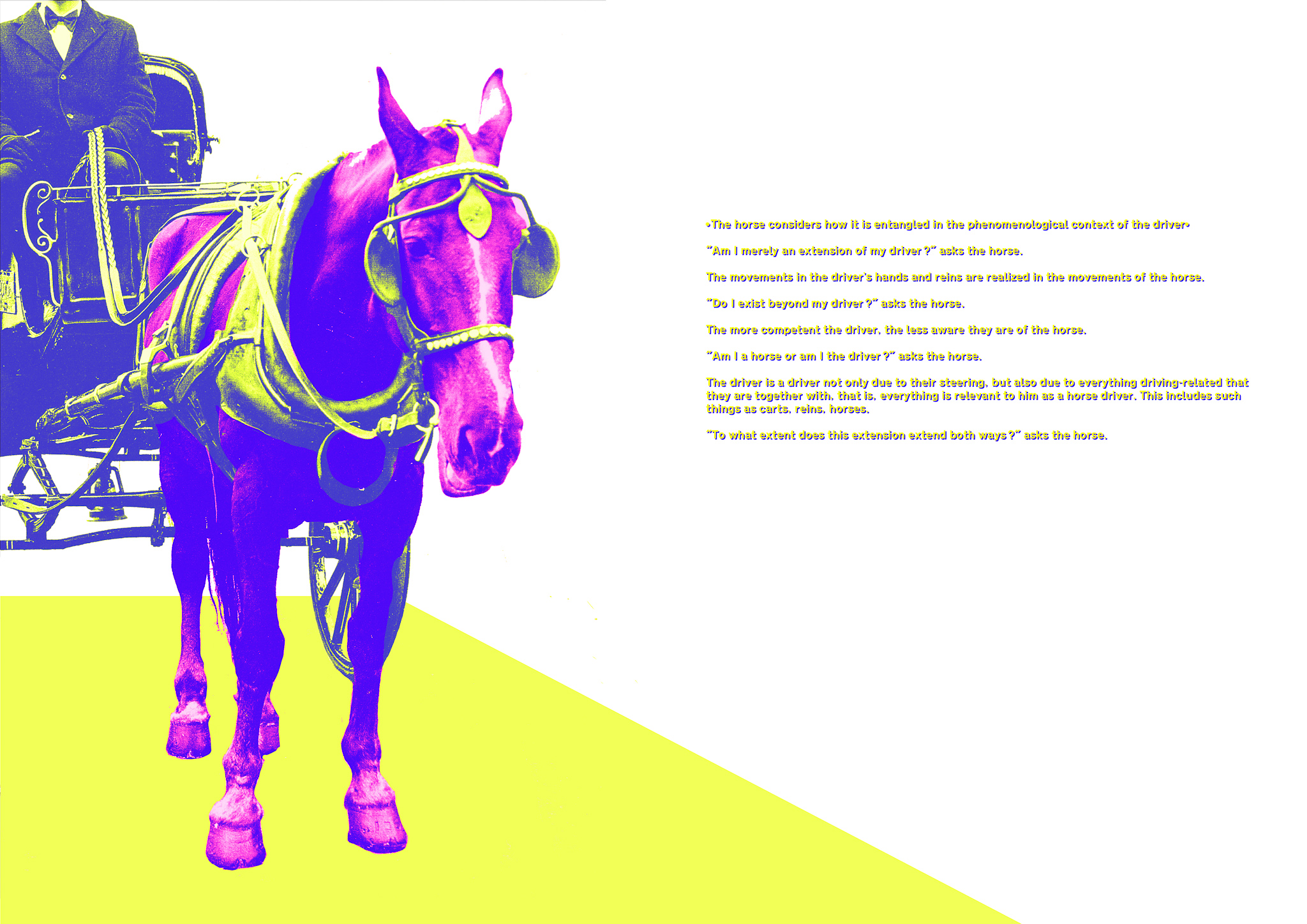
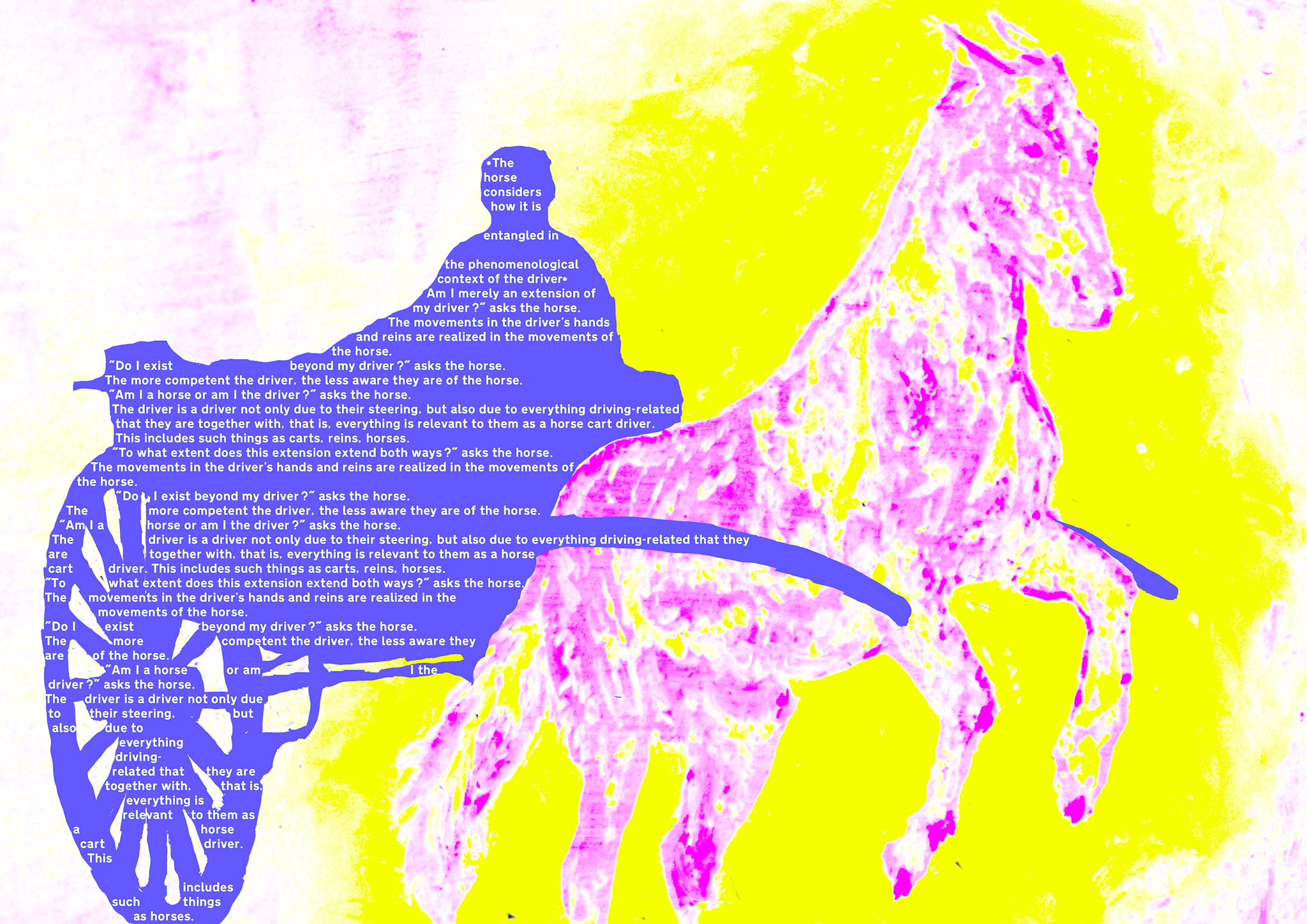
A contribution the the D Press Peas Zine 1
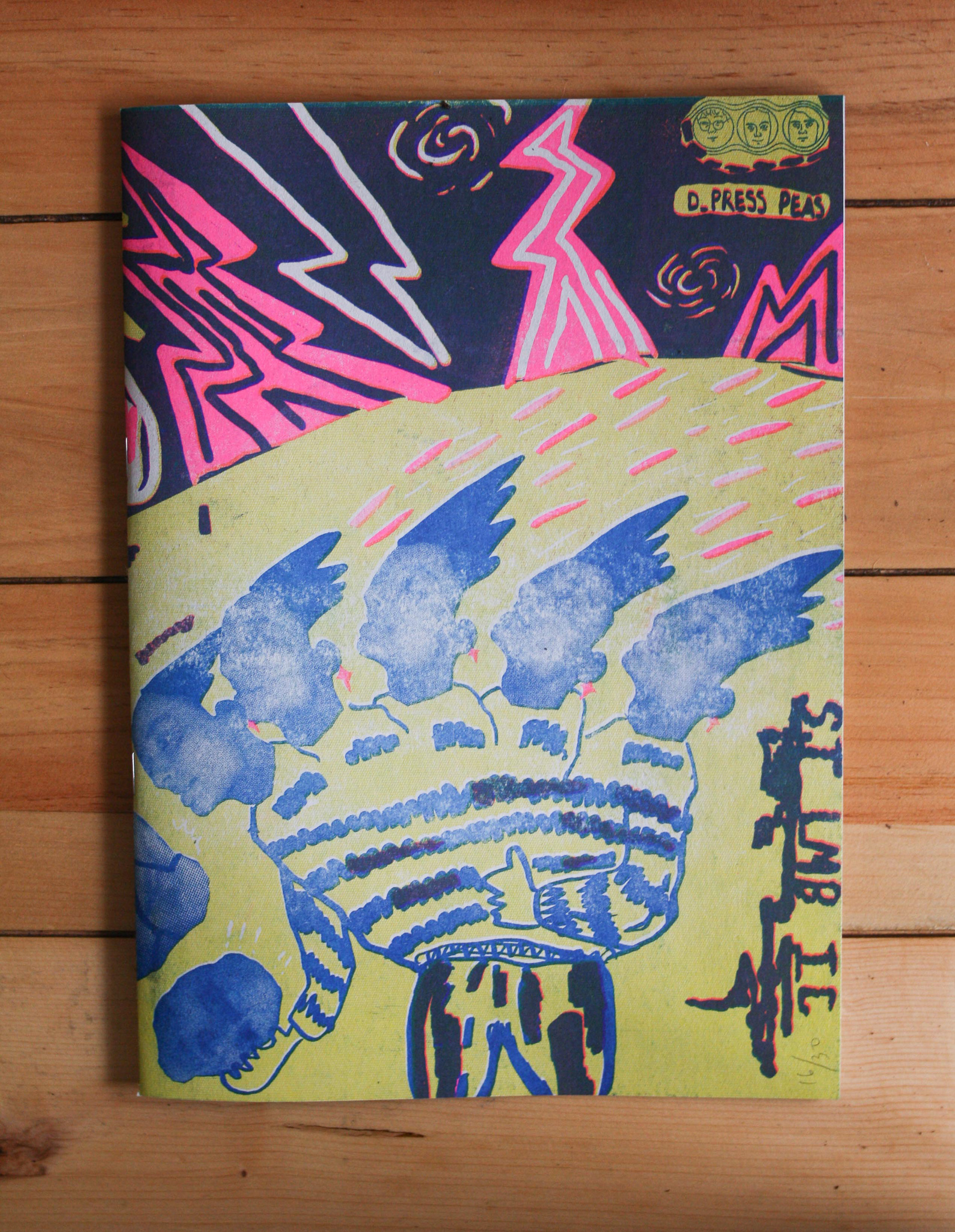
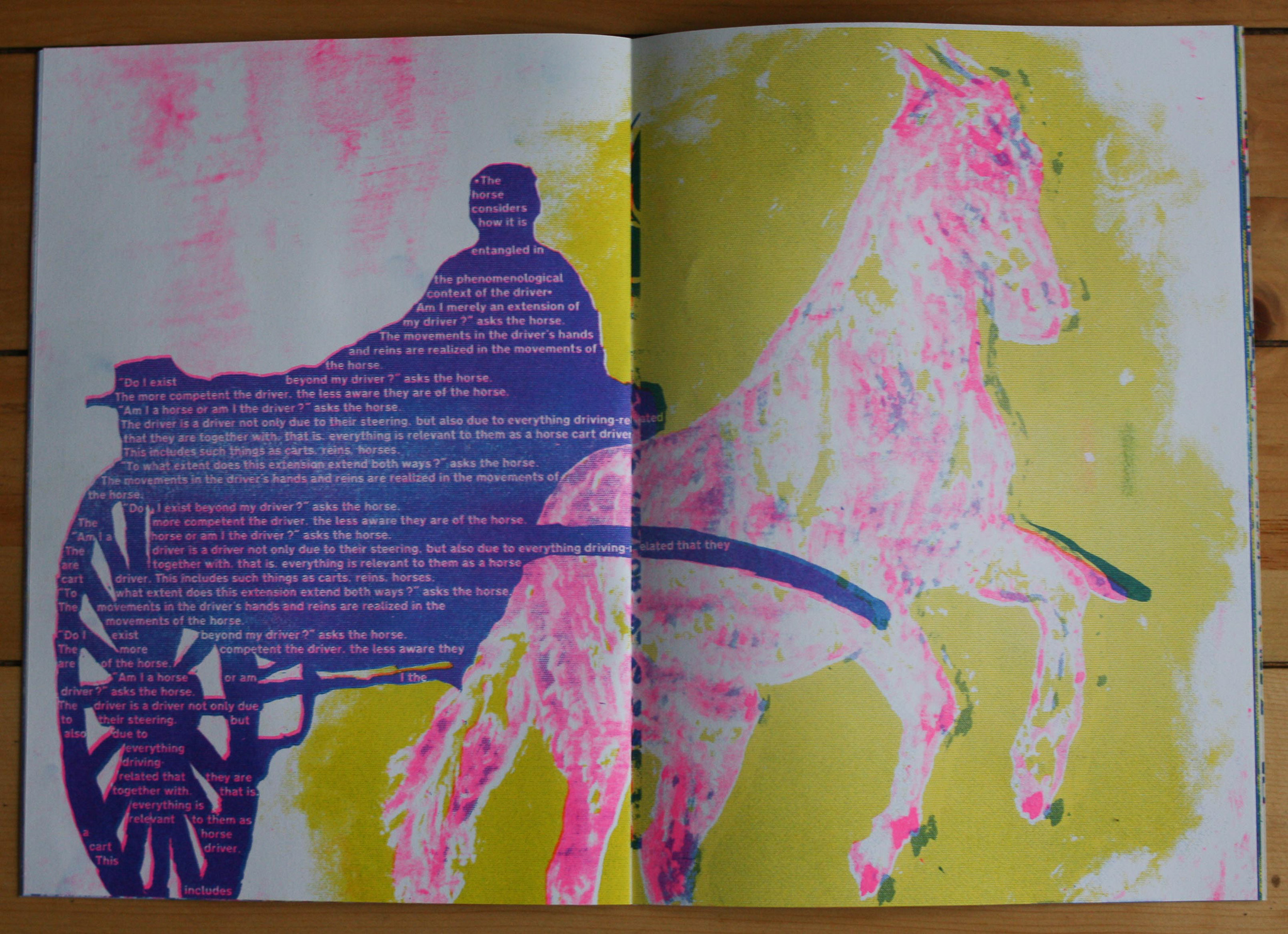
Horsedegger *The horse considers how it is entangled in the phenomenological context of the driver* "Am I merely an extension of my driver?" asks the horse. The movements in the driver's hands and reins are realized in the movements of the horse. "Do I exist beyond my driver?" asks the horse. The more competent the driver, the less aware they are of the horse. "Am I a horse or am I the driver?" asks the horse. The driver is a driver not only due to their steering, but also due to everything driving-related that they are together with, that is, everything is relevant to them as a horse cart driver. This includes such things as carts, reins, horses. "To what extent does this extension extend both ways?" asks the horse.
This was my response to the brief - Discovering the value and personal sentiment within a seemingly mundane and utilitarian object. Through simple interaction with an object, we seek to redefine its meaning and context. How can this object fit into your world in more ways than one? Is it possible to form a personal attachment to it within a day? At the end of it, how would you be able to document and archive the various experiences you have shared with the object?
Reflection/noitcelfeR
This week, I am most proud of the written brief at the beginning. The Peragrin Falcon thing is something I have been thinking about for a while and the brief is vaguely built from a piece I wrote on placement, over the summer. The oportunity to share it and see what people did with it was good. I wasn't prepared to produce anything to my own brief in a week, also, I had partially already responded to it previously so felt it would be unfair and perhaps not the challenge being set by the adults. Instead, once again, I have done some reading!(Wow, really? Some reading?) and cannot waste the effort of reading big long wordy books that make my head blue screen every other page. I need to use it in a recognisable and convincing way before my brain shits it out and I forget it all. I'm trying different ways to digest the different reading I have done recently. One enjoyable way is through poetry. A way of translating the media of written academia into other written not-academia. From this, I feel more at ease with it entering my own practice; phsyical work and longer thoughts and trains. I have had previous success using this technique with a poem by a Latourian seatbelt.
